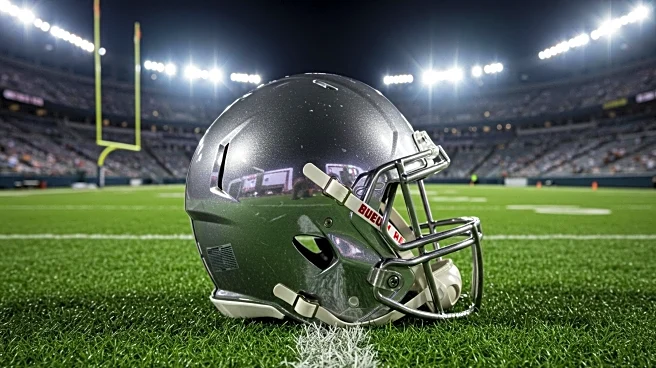What's Happening?
The NCAA has introduced several rule changes for the 2025 college football season aimed at improving game dynamics and fairness. One significant change involves clock management, where time will be added back to the clock if teams mimic Oregon's previous strategy of exploiting timeout rules. Additionally, the NCAA is addressing fake injuries by penalizing teams with a timeout or a 5-yard delay of game penalty if a player goes down after the ball is spotted. The playoff format has also been adjusted, with the top four teams in the final rankings receiving first-round byes, regardless of conference champion status. Furthermore, the Rose Bowl's kickoff time has been moved to 4 p.m. ET to accommodate the College Football Playoff schedule.
Why It's Important?
These changes are expected to impact the strategic approaches of teams and coaches, potentially leading to more dynamic and fair gameplay. The emphasis on penalizing fake injuries aims to maintain the integrity of the game and prevent teams from gaining unfair advantages. Adjustments to the playoff format could lead to more competitive matchups and influence the rankings throughout the season. The new kickoff time for the Rose Bowl may enhance viewer engagement by allowing for earlier start times for subsequent games, potentially increasing viewership and advertising revenue.
What's Next?
Teams and coaches will need to adapt their strategies to comply with the new rules, particularly in managing timeouts and player injuries. The NCAA will likely monitor the effectiveness of these changes and may consider further adjustments based on feedback and observed outcomes during the season. Fans and stakeholders will be watching closely to see how these changes affect the overall competitiveness and excitement of college football games.
Beyond the Headlines
The rule changes reflect ongoing efforts by the NCAA to address concerns about game integrity and fairness. By penalizing fake injuries and adjusting clock management rules, the NCAA is taking steps to ensure that games are decided by skill and strategy rather than exploitation of loopholes. These changes may also influence discussions around sportsmanship and ethical conduct in college sports.










